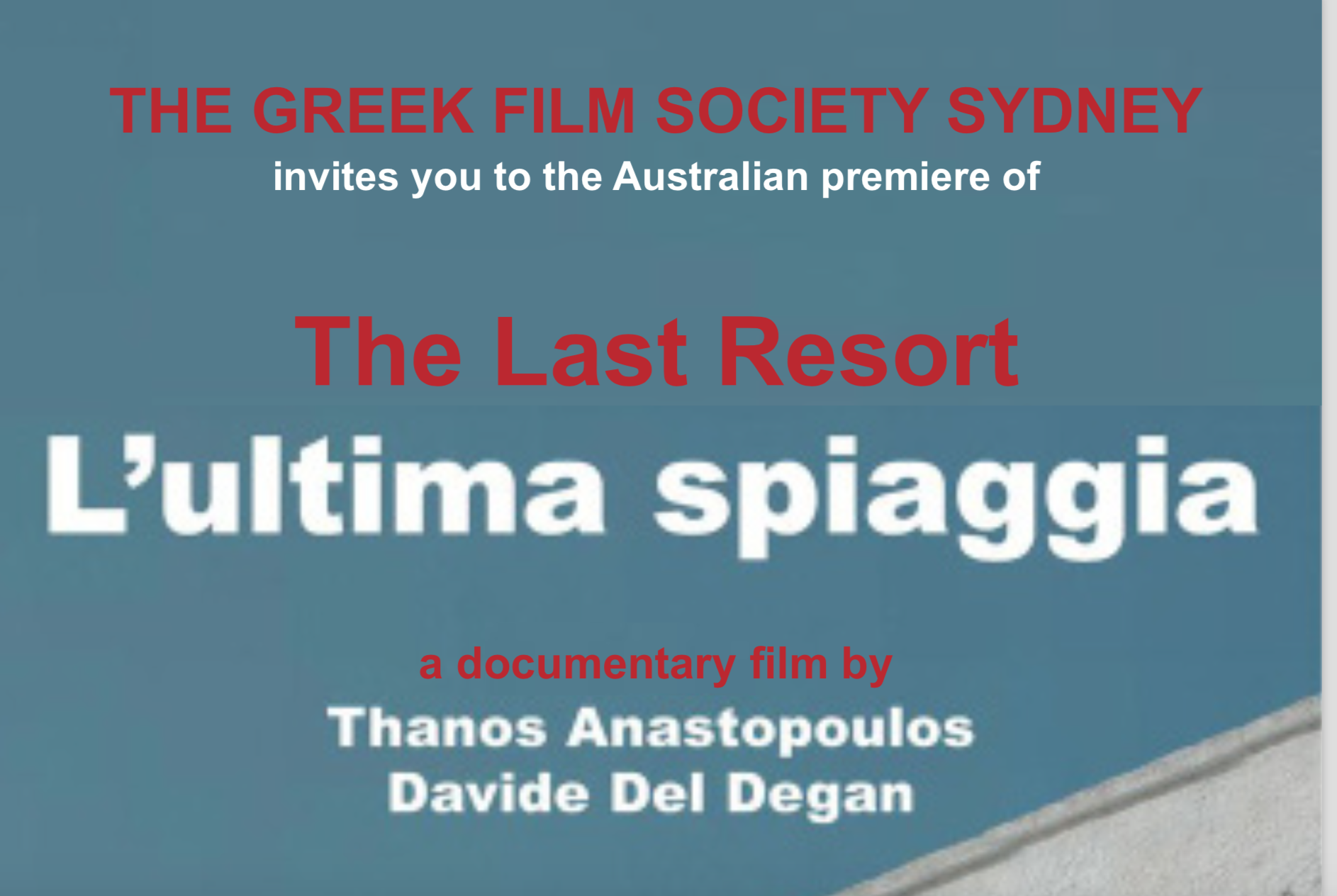THE GREEK FILM SOCIETY PRESENTS
The Australian premiere of the film, The Last Resort (L’ultima spiaggia/ Η Τελευταία Παραλία) 2016 135 ́ (Dir. Thanos Anastopoulos, Davide Del Degan).
An extended observational documentary that portrays everyday lives and characters that frequent an old municipal beachside in Trieste over a one-year period. An affectionate portrait that captures the eccentricities of the bath’s regular denizens and the complexities of the city’s past. The dialogue is a mixture of Italian and Triestine dialect. “A film about boundaries, identities and discrimination. A tragicomedy on human nature.” Special screening at Cannes festival 2016.
Cannes Film Review: ‘The Last Resort’ VARIETY 28 May 2016
A dividing wall separating men and women makes the beach in “The Last Resort” a quirky remnant from times past, a bit like the regular visitors themselves.
By Jay Weissberg
A populist beach in the border city of Trieste is “The Last Resort,” Thanos Anastopoulos and Davide Del Degan’s affectionately quirky… documentary tracking the fusty establishment’s regulars over the course of a year. Drawn to La Lanterna (the locals call it “El Pedocin”) by its aura of time past – the beach still has a dividing wall separating men and women – the directors use a purely observational approach, forgoing narration or commentary of any sort. Since Trieste retains significant Austro-Hungarian cultural roots, the city’s unique make-up adds a level of other-ness which the filmmakers are happy to foreground by focusing on the beach’s more eccentric denizens…
El Pedocin isn’t exactly a pretty beach, more pebbles than sand, and large ferries ply the waters nearby. But it is adjacent to the heart of the city, attracting an older, not exactly upmarket crowd (entry costs €1) who re-congregate year after year. For most, one of the key attractions is that men and women are separated: Some say it’s the last such establishment in Italy, others say the last in Europe. Not that anything untoward happens; rather, the regulars enjoy the solidarity of the same-sex space, where there’s no need to show off and everyone is at ease.
…towards the beginning there’s talk of Trieste soon after the war, when Italy lost most of the Istrian coast to Yugoslavia and families found themselves divided by an international border, but this forms just a small part of the film, whose goal isn’t to provide a potted history of the communities but document an anomalous survival from another era.
Seasons change, the beach crowd swells and then diminishes, leaving only the most colorful regulars (or at least those are the people Anastopoulos and Del Degan focus on). Dialogue is a mixture of Triestine dialect – incomprehensible to most outside the region – and Italian, which adds an additional bit of flavor…
Production: (Documentary – Italy-Greece-France) A Mansarda Production, Fantasia Audiovisual, Arizona Productions, with Rai Cinema, Greek Film Center. (International sales: Wide House, Paris.) Produced by Nicoletta Romeo, Stella Theodorakis, Guillaume de Seille.
Crew: Directed by Thanos Anastopoulos, Davide Del Degan. Written by Anastopoulos, Nicoletta Romeo. Camera (col- or), Ilias Adamis, Debora Vrizzi; editor, Bonita Papastathi; sound, Francesco Morosini, Havir Gergolet, Kostas Varibopi- otis; sound editor, Matteo Serman.

